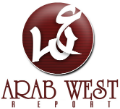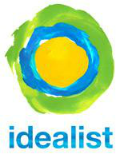Affiliated Organisations
You are here
The Arab Thought Forum | Amman, Jordan
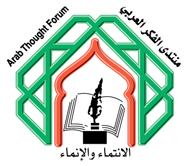 The Arab Thought Forum (ATF) is an independent, intellectual, pan-Arab non-governmental organization, which was established in 1981 in the wake of the 11th Arab Summit Conference, at the initiative of HRH Prince El Hassan bin Talal, along with twenty-five leading figures in academia and the field of development in the Arab world. It seeks to investigate and diagnose Arab World's current state of affairs, prepare forecasts and formulate practical solutions and viable options on issues such as unity, development, national security, liberalization and progress. The Forum chose Amman as its General-Secretariat headquarters.
The Arab Thought Forum (ATF) is an independent, intellectual, pan-Arab non-governmental organization, which was established in 1981 in the wake of the 11th Arab Summit Conference, at the initiative of HRH Prince El Hassan bin Talal, along with twenty-five leading figures in academia and the field of development in the Arab world. It seeks to investigate and diagnose Arab World's current state of affairs, prepare forecasts and formulate practical solutions and viable options on issues such as unity, development, national security, liberalization and progress. The Forum chose Amman as its General-Secretariat headquarters.Center for Strategic Studies in the Middle East (CESMO) | Tripoli and Beirut, Lebanon
 The Center for Strategic Studies in the Middle East (CESMO) is dedicated to promoting and improving understanding of the basic mechanisms underlying the current situation and the future of the Near and Middle East. Its objectives are to
The Center for Strategic Studies in the Middle East (CESMO) is dedicated to promoting and improving understanding of the basic mechanisms underlying the current situation and the future of the Near and Middle East. Its objectives are to - promote awareness of the risks, challenges and mechanisms of the Near and Middle East,
- inform, nurture and foster debate on these risks, challenges and mechanisms to different audiences: journalists, economic decision-makers, politicians, soldiers, students, general public.
Centre d’Etudes et de Documentation Economiques et Juridiques (CEDEJ) | Cairo, Egypt
 One of the primary functions of the Centre d’Etudes et de Documentation Economiques et Juridiques (CEDEJ) is to host young researchers in the process of obtaining their Doctorate, Master, or Bachelor degrees. It is also an important source of documentation, a workplace and an area for an exchange of ideas.
One of the primary functions of the Centre d’Etudes et de Documentation Economiques et Juridiques (CEDEJ) is to host young researchers in the process of obtaining their Doctorate, Master, or Bachelor degrees. It is also an important source of documentation, a workplace and an area for an exchange of ideas.The Center for Intercultural Dialogue and Translation | Cairo, Egypt
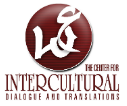 A Cairo-based research center and think-tank focused on communal relations in Egypt and the broader Middle East. They also specialize in the translation of media and classical Arabic texts into English and French. It also produces daily/weekly media summaries from Egyptian Arabic-language media which are produced in Arab-West Report.
A Cairo-based research center and think-tank focused on communal relations in Egypt and the broader Middle East. They also specialize in the translation of media and classical Arabic texts into English and French. It also produces daily/weekly media summaries from Egyptian Arabic-language media which are produced in Arab-West Report.Centre de Documentation et de Recherches Arabes Chrétiennes (CEDRAC) | Beirut, Lebanon
 Centre de Documentation et de Recherches Arabes Chrétiennes (CEDRAC) aims to enhance the cultural heritage of Arab Christianity and the Middle Eastern Christian heritage, with a view to developing a better understanding of the place and function of Christians in the Middle East. To this end, anything that can help Arab Christians one the one hand to know their history and on the other to understand the situation enters into the organization's activity. CEDRAC promotes this dual purpose through publications, conferences and their website.
Centre de Documentation et de Recherches Arabes Chrétiennes (CEDRAC) aims to enhance the cultural heritage of Arab Christianity and the Middle Eastern Christian heritage, with a view to developing a better understanding of the place and function of Christians in the Middle East. To this end, anything that can help Arab Christians one the one hand to know their history and on the other to understand the situation enters into the organization's activity. CEDRAC promotes this dual purpose through publications, conferences and their website.The Danish-Egyptian Dialogue Institute
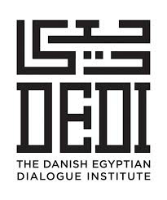 The Danish-Egyptian Dialogue Institute (DEDI) is an independent institution working to strengthen dialogue and mutual appreciation between Denmark and Europe on the one hand and Egypt and the Arab World on the other, within the fields of political, social and legal reforms, human rights and civil participation. It aims to further a contemporary and realistic appreciation of the respective societies, stressing how the citizens of these societies themselves look at their lives, their societies and its future. DEDI also seeks to transmit knowledge about how these societies debate their social issues in the local media.
The Danish-Egyptian Dialogue Institute (DEDI) is an independent institution working to strengthen dialogue and mutual appreciation between Denmark and Europe on the one hand and Egypt and the Arab World on the other, within the fields of political, social and legal reforms, human rights and civil participation. It aims to further a contemporary and realistic appreciation of the respective societies, stressing how the citizens of these societies themselves look at their lives, their societies and its future. DEDI also seeks to transmit knowledge about how these societies debate their social issues in the local media.DEDI was established in 2004 and became operational in spring 2005. It is based as an independent unit within the premises of the al-Ahram newspaper in Cairo and is affiliated to the al-Ahram Center for Political and Strategic Studies. It is financed by the "Partnership for Progress and Reform" initiative, which was launched by the Danish Government in 2003.
Centre for Middle Eastern Studies (CMES)
 The Centre for Middle Eastern Studies (CMES) Prague was established in October 2005 as an independent institute at the Department of International Relations & European Studies at the Metropolitan University, Prague (previously called the College of Public Administration & International Relations). CMES conducts public discussions, annual conferences, and academic courses.
The Centre for Middle Eastern Studies (CMES) Prague was established in October 2005 as an independent institute at the Department of International Relations & European Studies at the Metropolitan University, Prague (previously called the College of Public Administration & International Relations). CMES conducts public discussions, annual conferences, and academic courses.CMES is a member of the Anna Lindh Foundation and EURAMES.
The Institute of Eastern Christian Studies
 The Institute of Eastern Christian Studies (IVOC) was founded in 1991 in order to continue the work of the Institute of Byzantine and Ecumenical Studies in the Netherlands. This institute was led by the Congregation of the Fathers Assumptionists for forty years.
The Institute of Eastern Christian Studies (IVOC) was founded in 1991 in order to continue the work of the Institute of Byzantine and Ecumenical Studies in the Netherlands. This institute was led by the Congregation of the Fathers Assumptionists for forty years.
The Institute of Eastern Christian Studies is unique in Dutch-speaking countries. It is inked to the Radboud University of Nijmegen. The main purpose of the institute is the scientific study of Eastern Christianity and its primary activities are teaching, research, management and the expansion of a specialized library. In addition, the institute publishes the Journal of Eastern Christian Studies, formerly called ‘Het Christelijk Oosten’ and provides information, advice and organizes various projects.
Program of Civilizational Studies and Dialogue of Cultures
The PCSDC program at Cairo University focuses on the relationship between civilizations as an important and essential response to the challenges that are facing Arab and Islamic circles at the dawn of the new century. Such challenges should be tackled in an organized scientific way that fulfills the targets of both academic research and political action. This Program seeks to create awareness of Arab and Muslim civilizational heritages and others' civilizations and cultures. Moreover, it strives to develop an internal Arab and Islamic discourse.
The Program does not adopt an apologetic or defensive attitude but is occupied with discerning the characteristics of each civilization and taking the initiative toward establishing intra- and inter-civilizational dialogue and promoting research in the field of civilizational studies.
The Melkite Church
The Melkite Church unlike the other Eastern churches, Catholic or Orthodox, is not a national church. In the accepted canonical interpretation of the word it is a unique church, spread throughout the Arab Middle East and throughout an ever increasing diaspora. It is the legitimate heir to the three Apostolic Sees of Alexandria, Antioch and Jerusalem. Its origins are inextricably bound up with the preaching of the Gospel in the Graeco-Roman world of the Eastern Mediterranean and with the extension of Christianity beyond the limits of the Empire.
The Melkite Church's website contains a wealth of information particularly relevant to students of Christianity in the Arab world.


